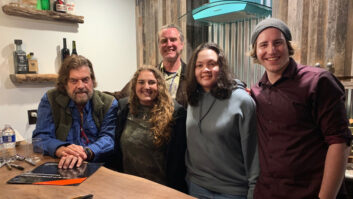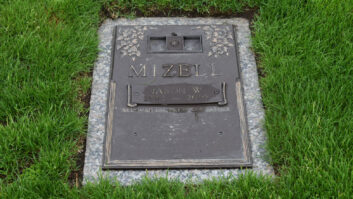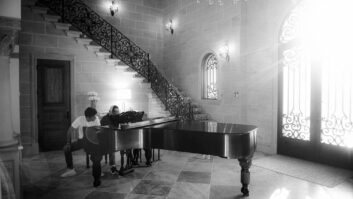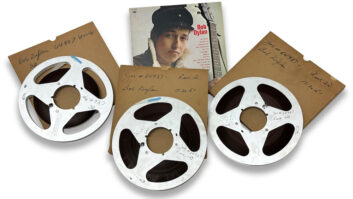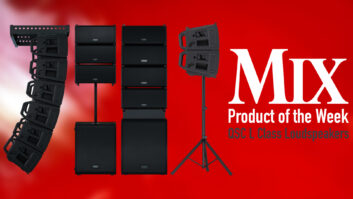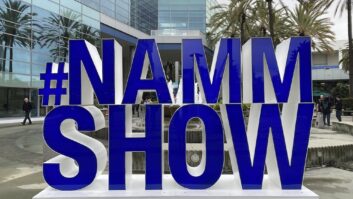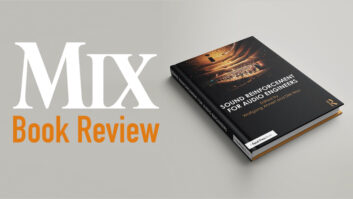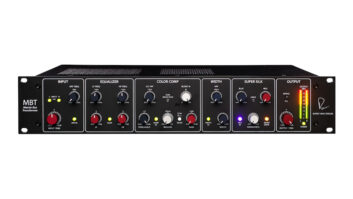Tarzana, CA (October 29, 2018)—”We’re here to talk about our companions, our peers, who we worked with, and remember what they did and keep their memories alive,” said Chris Lord-Alge, addressing the students assembled in the kitchen of his Mix L.A. recording studio on a Saturday morning in late September. “And share the knowledge of how we operate, work together and make music.”
The workshop, now in its second year, was created by Audio-Technica, the Recording, Radio and Film Connection (RRFC), and specialized marketing and public relations agency Clyne Media to honor the legacy of the late producer and engineer, Csaba Petocz. Recording Connection admissions staff selected the six Csaba Petocz Master Class Scholarship recipients attending the day-long event.
One student, Dawnette Scolari, a 2017 RRFC graduate, commented, “I am here today because I believe that you never stop learning. You could’ve already finished your courses, but opportunities like this are once in a lifetime. [Chris Lord-Alge] is hands down one of the mix masters of the century, and I don’t think that not coming to something like this was an option.”

As Lord-Alge noted, the path to becoming a working engineer has changed since he started out 40 years ago. “All of you are in a world where there is now zero mentorship,” he said. To help redress that situation, Lord-Alge spent the day sharing not only a wealth of recording and mixing knowledge, but also invaluable advice on handling the business side of the studio life, including how to manage relationships with collaborators, clients and record labels.
Leading the students into his mix room, Lord-Alge continued, “The main thing we’re going to discuss today is how you can fit into this world and what’s going to make it work. And how can you learn from me and translate my thoughts from my friend and companion, Csaba.”
Petocz, a three-time Grammy nominee with 37 number-one records and 32 platinum or multi-platinum albums to his credit, worked with some of the top names in the industry, including Metallica, Larry Carlton, John Michael Montgomery, Alanis Morissette, Aretha Franklin and Elvis Costello. He succumbed to cancer in July, 2015.
Lord-Alge, a five-time Grammy Award-winning mixer who has worked with the likes of Green Day, Keith Urban, Rise Against, Pink and Carrie Underwood, has long maintained a busy work schedule. “I’ve mixed over 20,000 songs—500 songs a year for 40 years—and I’ve worked on 25,000,” he said.
Lord-Alge hustled hard in his early years: “When I started out, I was so cocky. I’ve worked with people 10 times more qualified than me and they never get the gig. Why? Because I wanted it more than they did. The confidence level is everything, walking into a room and not knowing what to do, but knowing you can convince them that you know what you’re doing.”
The control room at Mix L.A., which started life as Can-Am Recorders until Lord-Alge purchased it because the site was only two miles from his home, is decidedly old school. “This is not the norm anymore. You could call this a vintage studio. This is all I know; when I grew up, this is what a studio was.”
During his early years in New York City, Lord-Alge worked at Unique Recording, Electric Lady, the Hit Factory and the Power Station—but as he noted, “A lot of these temples of sound have gone away.” These days, people set up facilities in their garage or spare bedroom, but wherever the studio is, he said, “You have to make a workplace that shows other people you mean business. How you convey yourself is everything.”
Mix L.A.’s Vincent van Haaff-designed control room is all business, with a wall of equipment racks ranged in a semi-circle behind the console. “It’s all used,” said Lord-Alge. “Does every song need all of it? No; some songs get almost none of it.”
Each piece is a flavor, he continued. “Each one specializes in certain sounds and they become the one to use on certain instruments all the time. Certain things are great on vocals, so they’re used on vocals all the time.”
Ultimately, he stressed, “The song dictates what you do. Your job is to serve the music, serve the artist, and make their dream come true through what you visualize and hear in your head. That means there are no rules.”

For years, Lord-Alge mixed from 48-track digital tape after transferring the Pro Tools sessions. A couple of years ago, he took the tape machine out of his workflow, but he hasn’t really warmed to the workstation. “You’ve got to hear the music, not look at the music. A lot of people are watching the screen and not listening. How about turning the screen off once in a while?”
A DAW is a tape machine with which the mixer can manipulate the audio, he continued. “It’s a multitrack you can edit, modify, use plug-ins. But to use it as a work surface to mix from,” he said, is unnatural to him (Lord-Alge used a saltier image).
“I can’t mix with a mouse because I can’t play a piano one finger at a time,” he said. “So my console of choice is SSL. I’ve been in front of one of these since they came out in 1985. Music creation is not based on modern equipment. For me, this is the best tool ever invented for mixing and producing. It has a fader, mute, EQ, compressor, gate, matrixing, six sends, inserts. For an analog console, what else do you need? And the automation is really simple.”
That’s not to say Lord-Alge avoids using plug-ins; indeed, he has developed his own line of signature plug-ins. “I use a lot of plug-ins. When I paint a picture, I use pencil, crayons, chalk, magic marker, whatever I hear in my head.”
His approach to mixing is also traditional. “I do my mixes in one pass. As soon as I want to change something, I back up. I constantly stop and start and inch my way to the finish line, because I want to hear it complete as I go. I don’t want a work in progress.”
But for all the talk of gear, “The tools you use aren’t important; the result is,” said Lord-Alge.
Audio-Technica • www.audio-technica.com
Recording, Radio and Film Connection • www.recordingconnection.com
